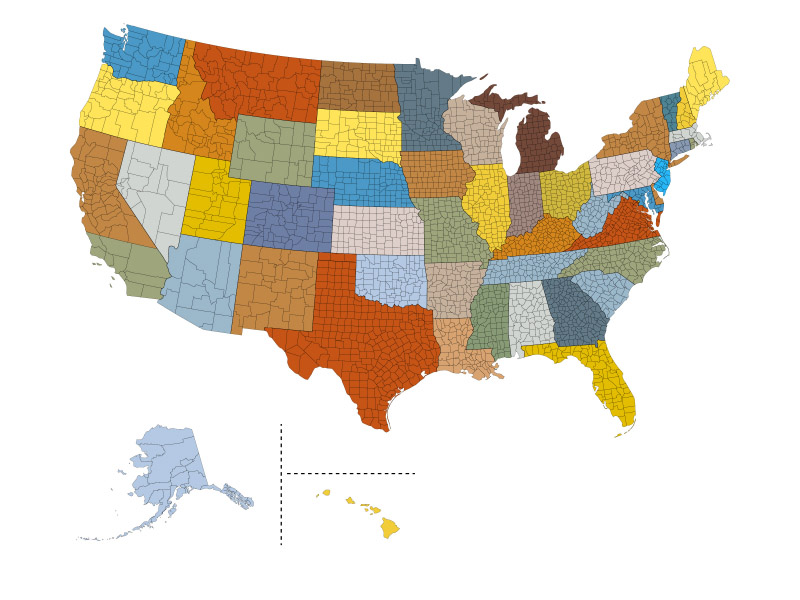'Socially vulnerable' counties highlight inequities in early deaths from heart disease
By American Heart Association News

People who live in "socially vulnerable" counties in the United States – including Black adults and those in rural areas – are far more likely to die prematurely from cardiovascular disease, new research shows.
The study used the Centers for Disease Control and Prevention's Social Vulnerability Index (SVI), which ranks communities based on 15 social factors, including poverty, household composition, unemployment, education level, older residents with disabilities, housing conditions and households with racially and ethnically diverse backgrounds. The research, published Monday in the American Heart Association journal Circulation, found people in socially vulnerable counties were 84% more likely to die before age 65 from heart-related illnesses than those living in counties with lower rates of social vulnerability.
The study also found Black adults living in socially vulnerable counties were twice as likely to die prematurely from heart failure and 65% more likely to die of stroke than those living in other counties. People in rural counties were two to five times more likely than those in urban counties to die prematurely from cardiovascular disease.
"There is compelling research suggesting that social factors – apart from medical conditions – play a more important role in health than previously thought," study author Dr. Khurram Nasir said in a news release. Nasir is chief of cardiovascular prevention and wellness at Houston Methodist DeBakey Heart and Vascular Center and co-director of the Center for Outcomes Research at Houston Methodist.
Cardiovascular disease is the No. 1 cause of death in the United States and the top cause of death for those under age 65. Traditional risk factors such as smoking, high blood pressure and high cholesterol contribute to premature death from heart disease and stroke.
But a growing body of evidence shows the conditions in the places where people live, learn, work and play – the social determinants of health – also play a role.
"Social vulnerabilities, related primarily to living in a low socioeconomic community, may exert independent and cumulative effects on health and can be measured at the individual or community level," Nasir said.
In the new study, researchers linked vulnerability scores for 3,143 U.S. counties from 2014-2018 to cause of death information from the CDC for the same period. They looked at deaths caused by cardiovascular disease overall, as well as those attributed to heart disease, stroke, high blood pressure and heart failure.
The results showed people in counties categorized as the most socioeconomically disadvantaged had a 52% higher risk of dying prematurely from heart disease; double the risk of dying prematurely from stroke; a 2.7 times higher risk of dying from high blood pressure; and a 3.4 times greater risk of dying from heart failure.
The study also found young adults and women in the most socially vulnerable counties experienced double the risk of dying early from cardiovascular disease compared to those in less socially vulnerable counties. The disparity was most glaring in the Southwestern and Southeastern regions of the country.
"Without access to quality care, nutritious foods, stable housing or other basic health needs, people often get sicker and die younger," Dr. Elizabeth A. Jackson said in the release. Jackson, who was not involved in the study, is a professor and interim director of the Division of Cardiovascular Disease at the University of Alabama at Birmingham.
While the data isn't necessarily surprising, she said the information "can inform public health policies and programs that target social factors in communities and help develop programs for counties and populations with the greatest need of cardiovascular preventive care."
Nasir said social risks and their potential impact on health require urgent attention, and health systems and doctors should incorporate these assessments into routine care. "As the link between social risk and health outcomes is more clearly defined and detailed," he said, "future policy and practice models should ensure appropriate resources are allocated to address excessive risk in socially vulnerable communities."
If you have questions or comments about this story, please email [email protected].




